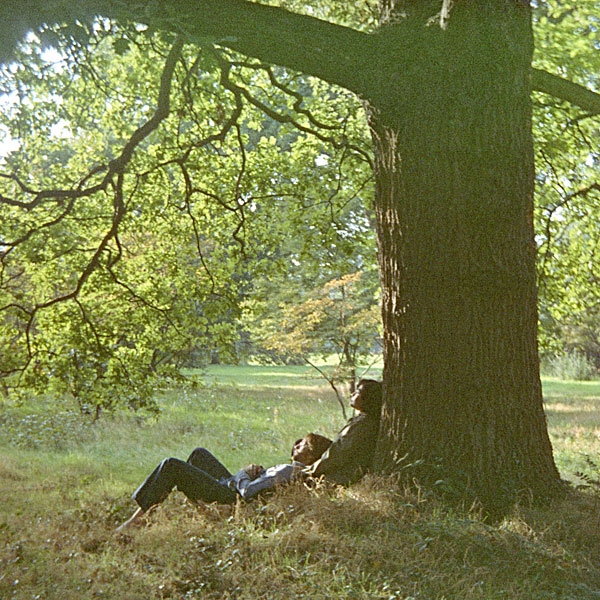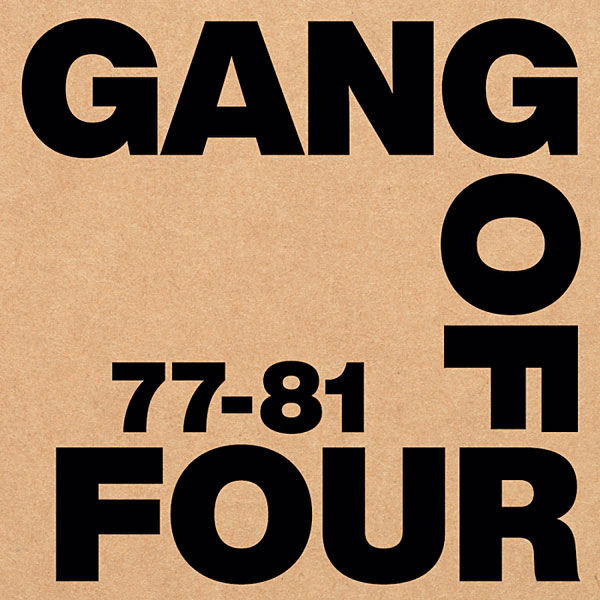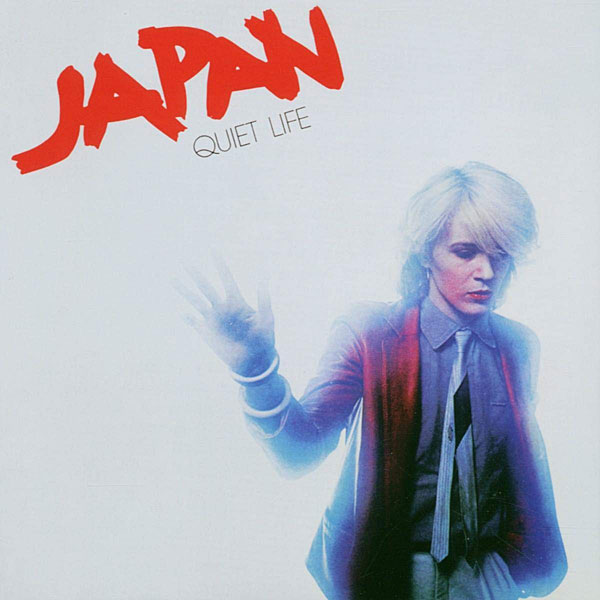| Columns Retired Columns & Blogs |
Four stars for the Lennon/POB album. Wow, really?
Re. Japan, a shout-out for the short-lived reunion on commendable 1991 album (now as "Rain Tree Crow").

John Lennon's first solo album was recorded in about a month, September– October 1970, less than six months after the Beatles imploded. Fresh off a summer of primal scream therapy, Lennon laid bare his soul's torments: the loss of his mother, the pressures of fame, feelings of betrayal and regret over the end of the Beatles' magic.
The style is direct, minimal, and unadorned. Most tracks are just voice and guitar and/or piano, Ringo's drums, and Klaus Voormann's bass. The album declared: Accept me as I am, or not. Inward-looking and self-absorbed, it's also by turns brilliant. It's yet more New from an artist who had been doing New for years, over and over.
In our current plague times, the album sounds shockingly current. The jangly, raw-nerve sound, the quick-temper lyrics, themes of isolation and mourning, are for here and now, not a half-century past. New mixes modernize the sound, enhancing its ghostlike timelessness. (Lennon has now been dead longer than he lived.)
The Ultimate Collection is a very deep dive. There are six CDs: new "Ultimate" mixes of the album tracks plus Lennon's first three singles; "Elements" mixes (spotlighting parts and themes of each song); "Raw Studio" mixes (casting off various Phil Spector additions); "Evolution" mixes (taking the songs from home demos to finished productions); out-takes and demos. Then there are two Blu-ray discs of HD (192/24) stereo, 5.1 surround, and Dolby Atmos surround mixes. The 67-page book goes into every aspect of the time, place, songs, and even includes an essay by Lennon's scream therapist. An elephant to eat in small bites.—Tom Fine

Gang Of Four: 77–81
Matador Records OLE-1570-MXX (5 LP, C90 cassette). 2021. Jon King, Rick Walton, prods.; Jimmy Douglass, eng.
Performance *****
Sonics ***½
This is how you produce a box set. Masterminded and co-designed by singer and Gang of Four cofounder Jon King, the slip case contains the components like a jewelry box with secret compartments. The biggest gems are the remasters of the band's first two albums, Entertainment and Solid Gold. In 1979, Entertainment opened the adrenalin rush of catchy post-punk. Two years later, Solid Gold got funkier and meatier. On both, King's sardonic vocals deliver witty Marxist barbs over jerky guitar (Andy Gill), throbbing bass (Dave Allen), and clattering drums (Hugo Burnham), creating a sound that today continues to influence scores of bands. The remastered versions don't sound that different from the original issues. That's okay: Solid Gold at least has recently been hard to find on vinyl, so its reappearance is welcome.
77–81 places both in context alongside an album of singles and rarities and a thumping live set recorded at San Francisco's American Indian Center. Always a band who would throw themselves sweatily into their set, they were arty and political, but they were always keen to dance.
Also included here is a C90 cassette of demos showing the band developing from its early influences in Brit pub rock and US funk. Matador Records offers a download code, but go ahead and make that long hunt for that dusty old Walkman, which makes it sound more like it should. (Luckily, a pencil was not required to respool.) The book is wonderful, too, with lyrics, reminiscences from the band, and comments from the likes of Michael Stipe and Greil Marcus. The elements interlock, making this box set great entertainment, just like their music.—Phil Brett

Japan: Quiet Life
BMG BMGCAT403CDX LP (3 CD). 1979/2021. John Punter, prod.; Colin Fairley, Keith Bassey, engs.
Performance *****
Sonics ****
Released in 1979, Japan's third album signaled a move away from rock to a more electronic sound. Lying somewhere between Giorgio Moroder and David Bowie's Low, with a touch of the Far East for good measure, this creative reboot allowed the band space for experimentation. Quiet Life even has strings (arranged by Ann O'Dell, who, like producer John Punter, had worked with one of the band's key influences, Bryan Ferry), the only time a Japan album ever saw such an indulgence.
David Sylvian's baritone voice seduces, while Mick Karn's fretless bass, Richard Barbieri's (later of Porcupine Tree) synthesizers, and Rob Dean's guitar—often played with an EBow—set the mood. The faster tracks, "Halloween" and "Quiet Life," start the courtship on the dance floor. The slower numbers, such as "Despair" and "The Other Side of Life," move beautifully on to a more reflective romance.
While Japan is often associated with the New Romantic movement, which sometimes seemed as much about fashion as music (think Boy George and Duran Duran), a sense of doubt and meditation permeates Sylvian's lyrics. On "The Other Side," Sylvian meets an ex-lover: "Well, it's been a long time/How should I feel? What can I say?" Sylvian rejected the New Romantic label and disbanded Japan just as they were achieving chart success.
The quality of the remastering allows the music to embrace the listener, sounding clear but not clinical. Quiet Life is also available as a single LP, but the extras included here make it worth consideration: a CD version of Quiet Life, a disc of remixes and singles, and a fun, if sonically raw, live album. The booklet is an apt addition for such a visually conscious band.—Phil Brett

Four stars for the Lennon/POB album. Wow, really?
Re. Japan, a shout-out for the short-lived reunion on commendable 1991 album (now as "Rain Tree Crow").